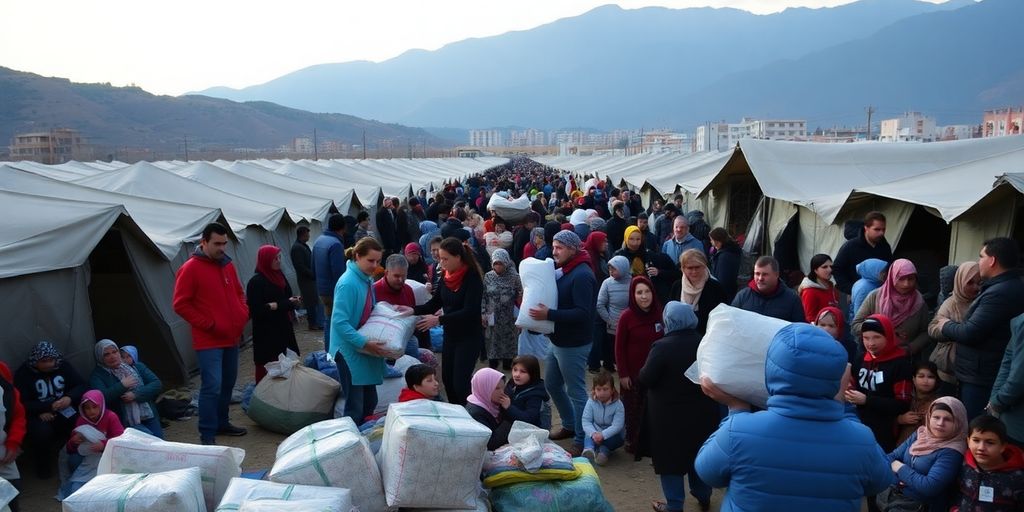Turkey is currently facing a complex humanitarian and political challenge as it navigates its policies regarding Syrian refugees. With the recent collapse of the Assad regime and the rise of the Hayat Tahrir al Sham (HTS) group, Turkey’s plans to repatriate millions of Syrian refugees have raised significant concerns about safety and compliance with international law.
Key Takeaways
- Turkey is planning to repatriate Syrian refugees amid ongoing instability in Syria.
- The HTS group, now in power, is designated as a terrorist organization by Turkey and the UN.
- Concerns about the safety and legality of repatriation are growing, with potential violations of international conventions.
Current Humanitarian Situation
Turkey has been a host to approximately 3.5 million Syrian refugees since the onset of the Syrian civil war. The humanitarian situation in Syria remains dire, with ongoing violence and instability. The United Nations estimates that over 22 million people in Syria require humanitarian assistance, and many refugees fear returning to a country still grappling with conflict.
Turkey’s Repatriation Plans
In December 2024, Turkey announced plans to facilitate the voluntary return of Syrian refugees, claiming to have already repatriated over 30,000 individuals. The Turkish government has committed to building infrastructure to support returning refugees, including housing for at least one million people. However, the legitimacy of these returns is under scrutiny due to the current political climate in Syria.
The Role of Hayat Tahrir al Sham (HTS)
The HTS group, which has emerged as a significant power in Syria following the fall of the Assad regime, poses a dilemma for Turkey. Despite being designated a terrorist organization, Turkey has engaged with HTS, complicating its repatriation efforts. The group’s leadership has a controversial history, raising questions about the safety of returning refugees to areas under HTS control.
International Law and Refugee Rights
Turkey’s plans to repatriate refugees may conflict with international law, particularly the principle of non-refoulement, which prohibits returning refugees to places where they face threats to their life or freedom. The UNHCR has emphasized that any returns must be voluntary, dignified, and safe, which is currently not guaranteed in Syria.
Growing Anti-Immigrant Sentiment
As Turkey grapples with economic challenges and rising anti-immigrant sentiments, public opinion towards Syrian refugees has shifted. This change has pressured the Turkish government to take a more aggressive stance on repatriation, despite the risks involved. The political landscape in Turkey is increasingly influenced by nationalist sentiments, complicating the humanitarian response.
Conclusion
Turkey’s approach to its refugee policies is at a critical juncture. While the government aims to repatriate Syrian refugees, the ongoing instability in Syria and the presence of HTS raise serious concerns about the safety and legality of such actions. As Turkey navigates this complex landscape, the rights and safety of refugees must remain a priority in any repatriation efforts.






